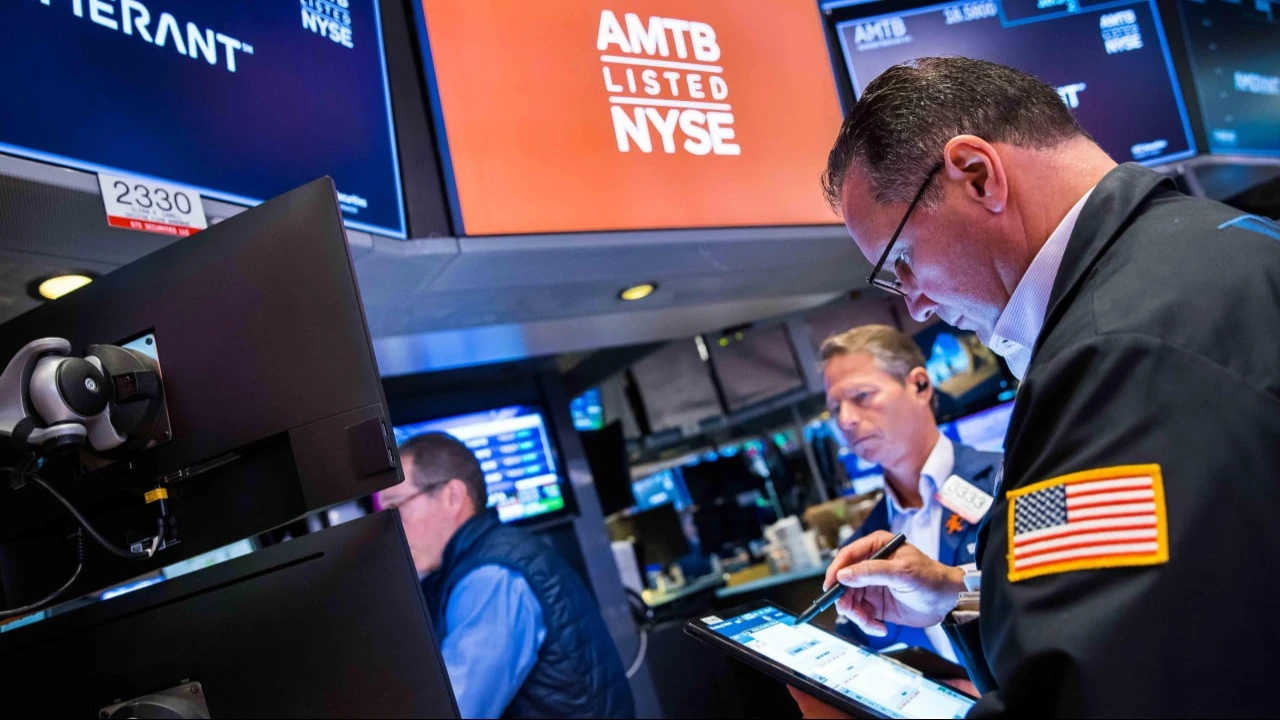"Giant bubble": what does the economist who predicted the 2008 crisis warn about?
David Rosenberg thinks overheated stock valuations could lead to another Wall Street collapse

Economist David Rosenberg, who predicted the 2008 crisis, warns: valuations of the US stock market have reached extreme levels. The S&P 500 index, in his words, has found itself in a "giant price bubble" and is unlikely to bring stable growth. Can this be called an alarming signal for investors?
Dangerous parallels
David Rosenberg believes the market is overheated because valuations are too high. "We are in a giant price bubble. And you realize it's a bubble when quotes are rising on deteriorating fundamentals," he told Business Insider.
Rosenberg is one of Wall Street's most famous bears, an economist with more than three decades of experience. He rose to fame after predicting the 2008 crisis, and early in his career he went through Black Monday in 1987, when the Dow Jones index plummeted 22%. Today, Rosenberg heads his own company, Rosenberg Research, and is known for his attention to leading indicators and critical view of the market. So his current forecast of overheating U.S. stocks is of interest.
In his forecast, Rosenberg relies on the CAPE ratio, which compares the stock price to the average earnings of companies over ten years and thus smooths out cyclical fluctuations. According to Rosenberg, whenever the ratio rose above 35, the market posted negative returns in subsequent years. The CAPE for the S&P 500 index is now around 37.5, one of three all-time record highs. The other two were in 1929, when the stock crash was the start of the Great Depression, and in 2000, when the dot-com bubble burst and indexes lost tens of percent.
Euphoria against a backdrop of anxiety signals
Rosenberg points out that it's not just CAPE. Earnings multiples are also stretched, he says, and forecasts for corporate results look overly optimistic. Bank of America calculates that starting valuations explain about 80% of stock market returns over a ten-year horizon. Analysts at Morgan Stanley and Goldman Sachs warned as early as 2024: at these levels, one should not expect high returns.
According to Rosenberg, the picture is exacerbated by the state of the economy. Over the past four months, U.S. employment has grown by less than 100,000 jobs per month. The Bureau of Labor Statistics revised the data: for the year, the economy created 911 thousand fewer jobs than previously thought. Initial jobless claims climbed to 263,000, exceeding analysts' forecasts. "The arithmetic is simple: if claims are consistently above 240k, it puts negative pressure on job growth. That's what we'll see in the September data," Rosenberg forecasts.
At the same time, stock indices continue to break records - and this is what the economist considers a sign of euphoria in the market. According to him, such discrepancies between prices and fundamentals cannot last long and usually end in a painful correction.
When forecasts diverge: what investors should do
Rosenberg has a reputation as a "permanent bear": his forecasts were often too gloomy and did not come true. But today, other market veterans share his views. Investor John Hussman, who predicted the 2000 and 2008 collapses, calls the 2025 market "the third major speculative bubble of the century" and also predicts weak long-term returns.
At the same time, Business Insider reminds us that historical data shows that stock indices often continued to rise even after reaching their highs. Therefore, optimists advise investors to avoid fear-driven decisions and not to rush to get out of the market.
Rosenberg still advises to prepare for a possible correction. He urges investors to remain cautious and diversify their portfolios not only by sector but also by asset class. As a "cushion" he singles out cache and protective instruments, which are able to retain value during a downturn. He is particularly distrustful of the rally in AI-related stocks: the economist sees it as a sign of overheating, reminiscent of past tech bubbles. "We're in some ways experiencing a repeat of the late 1990s, when the market ran hard," Rosenberg said in an interview with Bloomberg. - If it [won't be] a bubble, then a giant pop." Without the boom in investment in data centers and technologies related to generative artificial intelligence, the U.S. economy would already be in recession, he said.
This article was AI-translated and verified by a human editor
